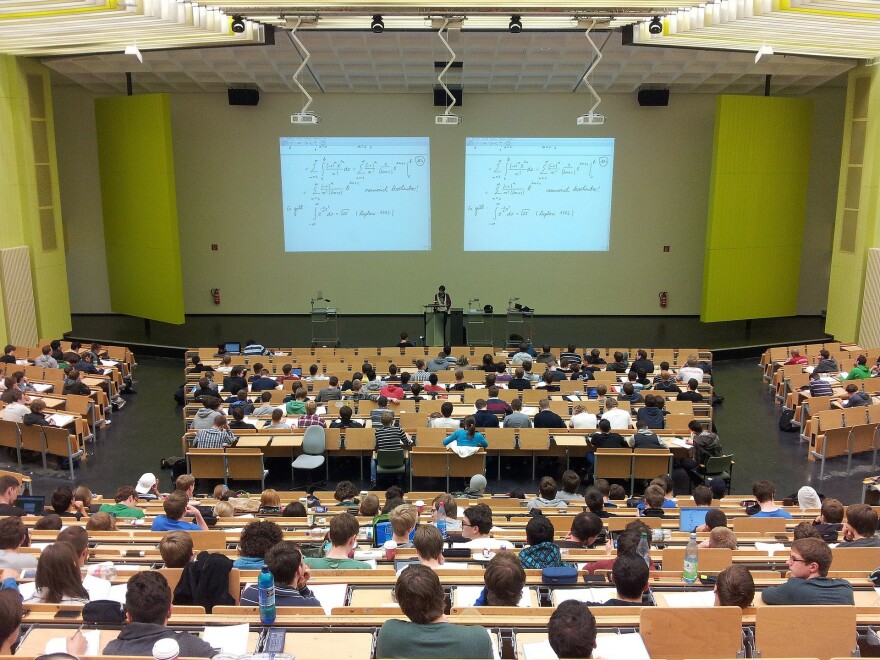In order to receive grants, scholarships, loans and other types of financial aid for post-secondary education, students need to fill out an important document.
The Free Application for Federal Student Aid, better known as FAFSA, is the primary document to determine a student's eligibility for financial aid. In fact, if a student is only seeking federal financial aid, it is the only document needed.
"State organizations will use the results of the FAFSA to determine eligibility for state programs," said Frank Green, a financial outreach counselor at the University of Hawaiʻi West Oʻahu.
He says that institutions also use it to determine how to disperse their funds, putting extra thought into getting the money into the hands of the people who need it the most.
The FAFSA application window opened in October, allowing millions of students in the U.S. to apply for federal assistance. Green says that billions of dollars in student aid is up for grabs every year.
"So we want them to get the application, get as much money as they can to help. It may not cover everything, but whatever they do get is certainly going to be a help."
Last year, only 53% of all local families completed the FAFSA form. While that put Hawaiʻi in the top half of completion rates, it is something that local educators and one local organization want to improve.
Hawaiʻi P-20 is a partnership with the Executive Office on Early Learning, Department of Education and the University of Hawaiʻi. The organization's mission is to help students fulfill their college and career goals by helping families with things such as financial aid.
"For the class of 2019, the completion rate for Hawaiʻi public high school seniors was about 64%," said Angela Jackson, associate director of P-20 and director of the GEAR UP Hawaiʻi project.
The 64% completion rate put Hawaiʻi in the top quarter of the country, even though Hawaiʻi schools don't require it be completed by their students in order to graduate.
Jackson says states with the highest FAFSA completion rates make it a requirement among their students.
But completion rates have dipped since the pandemic. Jackson says the completion rate for the Class of 2022 was 56.9% for public schools.

"It is literally millions of dollars that gets left on the table," said Green.
"By 'left on the table' what we're meaning is people didn't apply. They didn't even ask. They didn't even try. And therefore, none of it got pass out."
Green and Jackson say one of the obstacles preventing a higher completion rate is the general misperceptions about FAFSA and college.
"Typical misconceptions that we hear — it's too difficult to complete. And I have to tell you it's not. This is not a tax form, it's much easier," said Green.
Green says filling out the FAFSA usually takes between 45 minutes and an hour, and the form is getting easier and more streamlined.
Green says he often sees families not filling out the FAFSA because their income level is too high to get any assistance.
"Keep in mind that the FAFSA is the beginning of the financial aid process. While your income levels may make it so that you're not going to receive any of the federal grants, FAFSA is still going to be used by most scholarship organizations," he said.
One common misperception is the cost of attending a university — especially a local, public option.
"We have done surveys with our students and families, and we see that [they] tend to overestimate the tuition for a University of Hawaiʻi campus," said Jackson.
"College can be affordable. You do have to put in some work, but at the end of the day — especially if you're considering staying home here in Hawaiʻi — college is very affordable."
Jackson says that college might not be for everyone, but completing the FAFSA could help pay for some vocational training programs and other post-secondary options.
Green and Jackson hope FAFSA completion rates in the islands recover to pre-pandemic levels. They admit the state will never see a completion rate of 100%, and they wouldn't want that.
"We want to make sure that everyone is aware of their options," said Jackson.
The deadline to complete the FAFSA for next school year is June 30, 2023.
More information can be found at collegeiswithinreachhawaii.com




